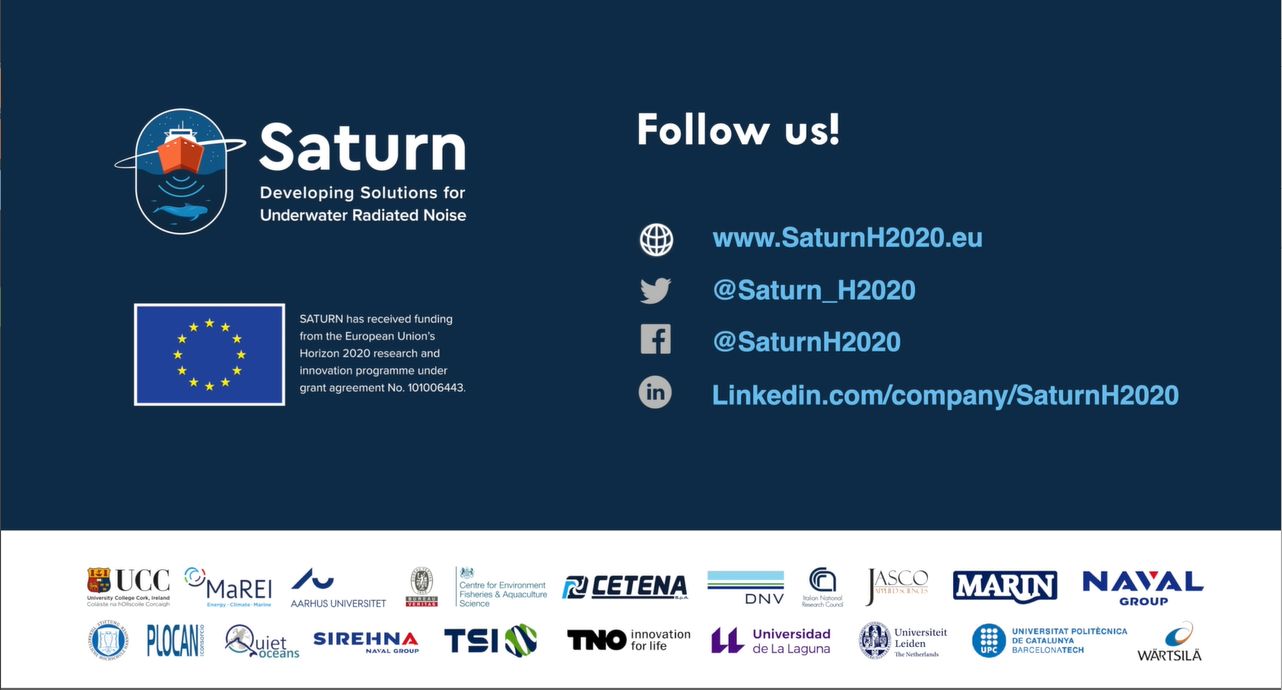
| Project data | |
|---|---|
| Project leader: | Prof. Prof. h. c. Dr. Ursula Siebert |
| Chief scientist: | Dr. Joseph Schnitzler |
| Scientific staff: | Dr. Dominik Nachtsheim, Dr. Nina Maurer |
| Overall project coordination: | Gerry Sutton, MaREI, University College Cork |
| Project term: | February 2021- August 2025 |
| Sponsorship: | EU |
Project description
It is widely recognised that noise entering the underwater environment from shipping and other human activities can disturb and harm aquatic animals.

Studies have already shown these disturbance effects, while other research has suggested ways to reduce some of the noise generated by shipping. However, there are still gaps in our knowledge and understanding of how underwater noise can affect individual animals and entire populations.
This is now set to change with the SATURN consortium, which for the first time brings together leading European experts in bioacoustics, veterinary medicine, population biology, plus naval architecture and engineering in an EU-funded project.
Key issues include:
- Identifying sounds that are most harmful to aquatic species and how they are generated and propagated;
- What are the short-term and cumulative long-term negative effects of noise from ships and boats on aquatic species in rivers and the sea;
- What are the most promising options for measuring and reducing the negative impacts of ship noise that can be applied to current and future ships.
Prof. Prof. h. c. Dr. Ursula Siebert, Director of the Institute for Terrestrial and Aquatic Wildlife Research at the TiHo, is the leader of the biological working group in this consortium, which investigates the influence of underwater noise on the behaviour, health and energy balance of aquatic organisms. Another important aspect supported by ITAW is public relations and communication.
What is the SATURN project about?

Please note: Once you watch the video, data will be transmitted to Youtube/Google. For more information, see Google Privacy.
Studying impacts of underwater noise

Please note: Once you watch the video, data will be transmitted to Youtube/Google. For more information, see Google Privacy.
Technical solutions to reduce noise

Please note: Once you watch the video, data will be transmitted to Youtube/Google. For more information, see Google Privacy.
SATURN Project Results

Please note: Once you watch the video, data will be transmitted to Youtube/Google. For more information, see Google Privacy.



